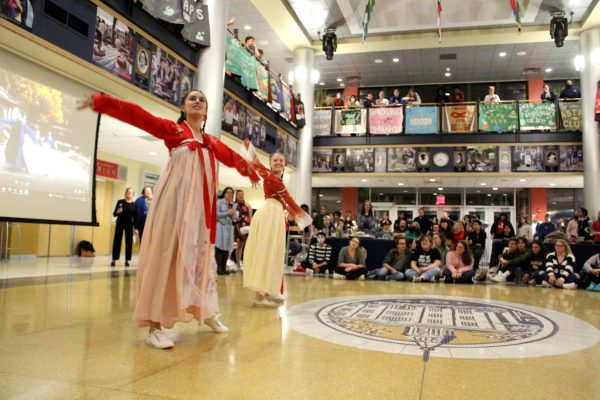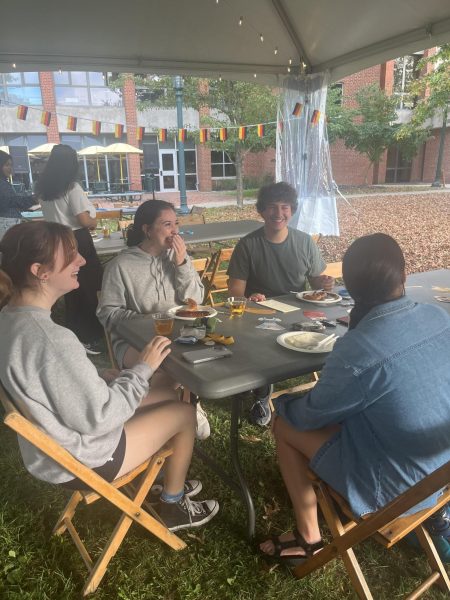Medical Ethics Lecture broadens perspective on global health
The 12th Annual Lehman Medical Ethics Lecture, sponsored by the global health studies department, hosted Henk Ten Have, director of the Center for Health Care Ethics at Duquesne University in Pittsburgh. He delivered a lecture on ethics and healthcare in Quigley Auditorium on Tuesday, Feb. 28.
As a student of Leiden University, located in the city of Leiden, Netherlands, Ten Have studied medicine and philosophy, receiving a doctoral degree in each field.
Upon his graduation, Ten Have became a professor of medical ethics and the director of the department of ethics, philosophy and history of medicine at the University Medical Centre Nijmegen in the Netherlands. Ten Have furthered his career in medical ethics in Paris as the Director of the Division of Ethics of Science and Technology for the United Nations Environmental, Scientific and Cultural Organization.
Tuesday’s lecture highlighted his experiences with UNESCO and the United Nations’ Universal Declaration on Bioethics and Human Rights. The Universal Declaration on Bioethics and Human Rights, adopted on Oct. 19, 2005, is critical in the search for global minimum standards in biomedical research and in clinical practice, according to UNESCO.
Speaking as a contributor to the official UNESCO declaration, Ten Have discussed emerging scientific and technological developments in the medical field, and its relationships with global societal changes. Ten Have reflected on bioethics emergence as a medical discourse in more industrialized, developed Western countries and how the process of globalization implemented by these countries has contributed to inequality, environmental degradation and pandemics on a global scale. UNESCO intends to reverse these consequences.
“We discussed how globalization is going to literally deteriorate this entire planet,” said Eli Moon, ’19, a global health studies student.
Ten Have indicated that the focus on ethics in medical and biological research is a more contemporary concept — materializing in the 1970s with significant advances in medicine. According to Ten Have, diversity in the healthcare field is not always accounted for.
“He emphasized our need to be global citizens, rather than focusing solely on American benefit,” Moon said. “It was extremely interesting, and empowering for students studying medicine, philosophy, and global health.”
President of the Pre-Health Club Brittani Vescio, ’17, said a variety of students from different disciplines attended the lecture.
“It wasn’t only pre-med students who attended. There were students of philosophy, political science, economics and global health present,” said Vescio.
Corey Keenan, ’17, attended the lecture to better understand the relationship of globalization and the medical field, as he intends to become a physician and pursue a healthcare career in global context.
“Bioethics isn’t a concrete field because we’ll continue to make new medical advances, but regardless we can’t impose Western viewpoints on the rest of the world,” Keenan said. “[Ten Have’s] main point was that we need to consider all aspects of every individual, including culture.”






